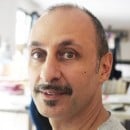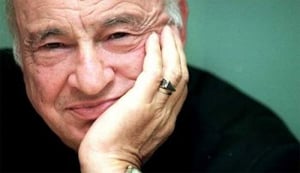How should science be seen in the twenty-first century? Edgar Morin attempts to answer this question in his work, starting with certain evidence that is right under our noses: that almost all the scientific theories of the nineteenth century, with the exception of thermodynamics and the theory of evolution, are today obsolete. The concept of ‘classic science’, based on absolute determinism (therefore on the total elimination of chance) still endures in a particular form of modern science, but is showing more and more signs of weakness.
“At the beginning of the twentieth century, quantum mechanics turned the classic concept upside down, not only with the coincidence, but the fundamental unpredictability and uncertainty of the behavior, and also the nature, of microphysical objects. Starting with the work of Hubble on the expansion of the universe, we were able to highlight the uncertainty that weighs on its origins, on its constituents and its future, through the definition of the concepts of ‘dark matter’ and ‘dark energy’. Finally, the theories of chaos teach us that, even when a system is determinist, the uncertainty that reigns over its initial conditions ensures that its behavior cannot be predicted. We can no longer rule out uncertainty because we cannot know all the interactions of a system with perfect precision, especially when the system is very complex. Unpredictability also exists in the core of determinism itself”.
Contending with uncertainty and unpredictability means not only having to call the basics of classic science into question, but also our ordinary way of becoming familiar with the world and the idea itself of rationality. We are surrounded by an extremely interconnected reality, where we can no longer separate elements that are indeed linked to one another and where you cannot reduce the knowledge of a system to that of its basic constituents.
Uncertainty, unpredictability and doubt are interconnected, they call each other to account. After all, it mustn’t be forgotten that the scientific method was developed to raise doubts, not to produce certainties.
Unfortunately, even in science, theories often tend to become hardened in doctrine over time. We must acknowledge the changing nature of scientific theories, and in particular the uncertainty of our own knowledge. As Morin recalls, Hegel stated that ‘Scepticism is the energy of the mind’, because it attacks dogma and beliefs. Being aware of the perpetual pitfalls of errors and illusions, which always appear to be absolutely true, ought to constantly spark doubt. However, also in this case, paradoxically, we have to be on the lookout for the pitfalls of certainty.
“The need for doubt has grown in our age where fake news, rumors and gossip are not only spread through word of mouth, but with an unprecedented speed and range through the internet. It is necessary to also be aware that uncontrolled and unlimited doubt is transformed into the paranoid certainty that everything is completely false or misleading. We have to also know how to be wary of doubt”. And this occurs wherever the results of surveys, investigations, assessments and research are gathered, when we fail to reflect on them, i.e. to examine them from different points of view.
For Morin, what the scientific community is lacking today is the tendency to produce a vision of unity, an inability that has its roots in the gradual separation over the last two centuries of two components of culture – scientific culture and humanistic culture. Today humanistic culture only has a very vague idea, taken from the media, of the fundamental contributions of science to the knowledge of our physical and living universe. On the other hand, scientific culture ‘recognises objects and ignores the party that recognises them’ and does not produce the necessary reflection on the uncontrolled future of science.
“Scientists lack the epistemological culture required to understand a change of paradigm. Of course, everyone attempts to negotiate with uncertainty in their individual disciplines. But the problem of unity is never raised. They fail to think about this problem radically and globally. And, moreover, the intrusion of uncertainty is only one of the aspects of this problem. We must therefore change the way we think about scientific knowledge”.
And there is yet another tough challenge just as great as the challenge we are faced with in the twenty-first century: that of learning to operate in unexpected and unexplored scenarios.
“The abandonment of determinist ideas in human history that believed they could predict our future, the examination of great events and incidents in the last century that were completely unexpected and the unknown character of human adventure ought to inspire us to prepare our minds and to expect the unexpected so that we know how to deal with it”.
According to Morin, this problem – and this task – is the responsibility of education.

